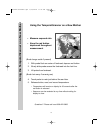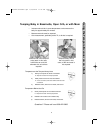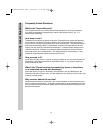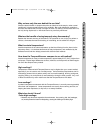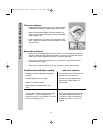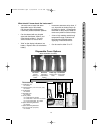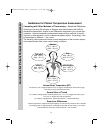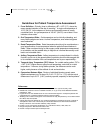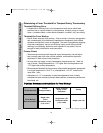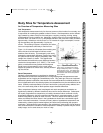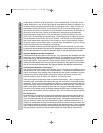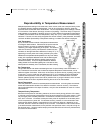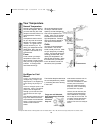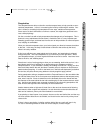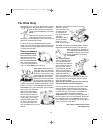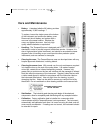
Determining a Fever Threshold
Determining a Fever Threshold for Temporal Artery Thermometry
Threshold Defining Fever
• A threshold for defining fever is the temperature level above which false
positives due to normal variations in temperature, including range of normal
mean + circadian effects + other effects (metabolic, ovulation, etc.) are unlikely.
Threshold for Fever Workup
• Not all fevers require a fever workup. A fever workup is an early management
tool in assessment of the likelihood of septicemia or bacteremia, and initiated
whenever an infectious source is suspected. The level of temperature triggering
such that investigatory workup is sufficiently high to avoid false positives
resulting in unnecessary discomfort and expense for the patient, but low
enough for early identification and intervention.
Primary Points
• Temperatures measured with temporal artery thermometry may be higher
than normally seen with other clinical methods, and therefore require an
adjustment in both protocol and perception.
• No one value can apply to every temperature measurement site. Note old
rule of thumb: Rectal temperature is ~1°F higher than oral temperature and
~2°F higher than axillary temperature.
• Recommended threshold for fever workup using arterial temperature assessment
is a single temperature >101.8°F, or a temperature >101.2°F sustained for
more than 1 hour.
• Adjustment of ~1°F is necessary to raise the temperature level normally
mandated for fever workups to prevent false positives, unnecessary cultures and
blood tests, etc.
Physician Recommended Guidelines for Fever Workup
1
Temperature Site
Fever Workup
Recommendation
Core &
Temporal Artery
Single value
>101.8
Sustained values
(>1h) >101.2
Oral & Temporal
Artery in Oral
Calibration
Single value >101
Sustained values
(>1h) >100.4
Axillary
Single value >99
1
Source on file at Exergen Corporation
16
818528r5:818528r5.qxd 4/24/2008 11:04 AM Page 18



